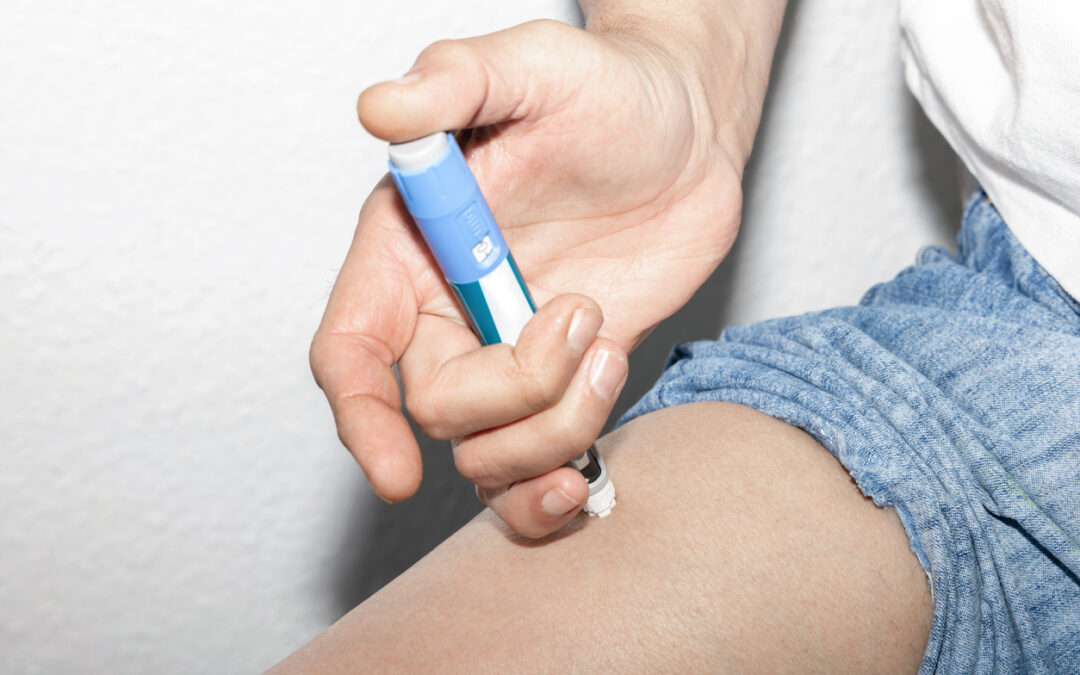Lawsuits are being filed by people who blame diabetes drugs like Trulicity for causing stomach paralysis (gastroparesis) and other severe digestive side effects.
What You Can Do & How We Can Help
The Schmidt Firm, PLLC is currently accepting Trulicity induced injury cases in all 50 states. If you or somebody you know was diagnosed with stomach paralysis (gastroparesis) after using Trulicity, you should contact our lawyers immediately for a free case consultation. Please use the form below to contact our Defective Drug Litigation Group or call toll free 24 hours a day at (866) 920-0753.
Trulicity Lawsuit Filed by Woman With Gastroparesis
In April 2024, a lawsuit was filed by a woman from Ohio who used Trulicity and developed severe stomach paralysis, nausea, vomiting and other serious injuries that required multiple trips to the hospital. Click here to read more.
What is Trulicity?
Trulicity® (generic: dulaglutide) is a once-weekly injection medication for type-2 diabetes that is manufactured by Eli Lilly. It was approved by the FDA on September 18, 2014.
Trulicity Label Includes Warning for Pre-Existing Gastroparesis
The original label for Trulicity warns that it should not be used by patients with severe gastrointestinal disease, including patients with pre-existing gastroparesis, in the Prescribing Information:
“Severe Gastrointestinal Disease: Use of Trulicity may be associated with gastrointestinal adverse reactions, sometimes severe. Trulicity has not been studied in patients with severe gastrointestinal disease, including severe gastroparesis, and is therefore not recommended in these patients.
The Prescribing Information includes a section on gastroparesis, which warns: “Dulaglutide slows gastric emptying. Trulicity has not been studied in patients with pre-existing gastroparesis.”
How Does Trulicity Work?
Trulicity works by acting like the natural human hormone GLP-1, which is found in the brain and digestive system. GLP-1 helps regulate blood-sugar levels, stimulates the body to release insulin from the pancreas, and slows down the movement of food from the stomach to the intestines. This helps people feel full longer and eat less food.
What is the Problem?
Lawsuits are being filed by people who developed stomach paralysis after using GLP-1 medications like Trulicity, Ozempic, Wegovy, Mounjaro, and others. These lawsuits claim that drug-makers did not adequately warn patients or doctors about this life-threatening health risk.
Diabetics May Not Know They Have Stomach Paralysis
People with type-2 diabetes are more likely to develop stomach paralysis as a result of uncontrolled blood-sugar levels causing damage to the nerves that control muscles in the stomach.
However, many diabetics with gastroparesis are unaware of the disease because it does not always cause severe symptoms — it just slows down gastric emptying. The symptoms of stomach paralysis may worsen significantly when a diabetic person starts Trulicity, resulting in severe gastrointestinal problems or even a blockage.
For example, in August 2020, a study called “Diabetic Gastroparesis: A Review” was published by researchers who warned:
“Patients do not know they have diabetic gastroparesis until they are put on a glucagon-like peptide 1 (GLP-1) receptor agonist … to manage their blood glucose. … This class of drugs can exacerbate the symptoms of diabetic gastroparesis.”
What is Stomach Paralysis?
Stomach paralysis, also called “gastroparesis” or “delayed gastric emptying,” is a disorder that occurs when the movement of food from the stomach into the intestines slows down or stops completely.
What is the Risk?
Mild cases of stomach paralysis may not cause any symptoms at all, but it can cause severe gastrointestinal problems — especially when hardened masses of half-digested food create a painful, life-threatening blockage in the stomach or intestines.
Signs & Symptoms of Stomach Paralysis
The symptoms of stomach paralysis may include:
- Nausea
- Vomiting
- Vomiting undigested food hours after eating
- Abdominal discomfort
- Stomach pain
- Feeling full after eating only a little bit of food
- Lack of appetite for hours after eating
- Bloating
- Heartburn (acid reflux disease)
- Weight-loss
- Malnutrition
- Stomach obstruction
- Intestinal blockages
- And more
Do I have a Trulicity Stomach Paralysis Lawsuit?
The Schmidt Firm, PLLC is currently accepting Trulicity induced injury cases in all 50 states. If you or somebody you know was diagnosed with stomach paralysis (gastroparesis) after using Trulicity, you should contact our lawyers immediately for a free case consultation. Please use the form below to contact our Defective Drug Litigation Group or call toll free 24 hours a day at (866) 920-0753.
Attention Lawyers: We consider a referral from another law firm to be one of the greatest compliments. If your firm is interested in referring us a case or for us to send you a list of previous award judgments and/or average referral fees, please visit the Lawyer Referral section of our website.


 The Schmidt Firm, PLLC has been recognized as one of the nation’s leading plaintiffs' law firms and handles cases in all 50 states. We are very proud of our legal achievements, but equally self-respecting of our firm's reputation for providing personal attention to each and every client we represent.
The Schmidt Firm, PLLC has been recognized as one of the nation’s leading plaintiffs' law firms and handles cases in all 50 states. We are very proud of our legal achievements, but equally self-respecting of our firm's reputation for providing personal attention to each and every client we represent.

